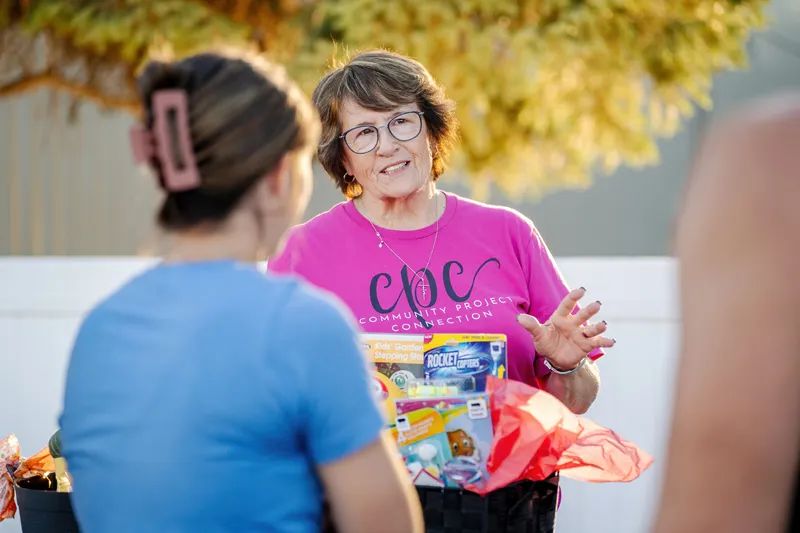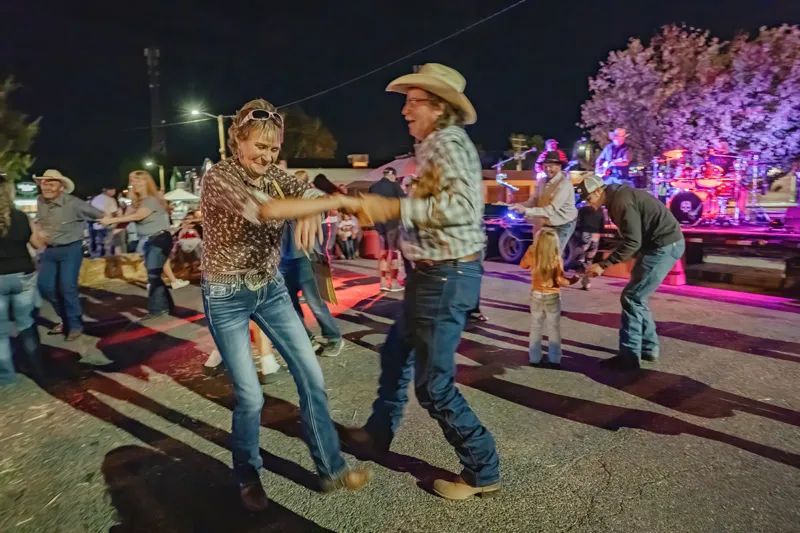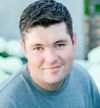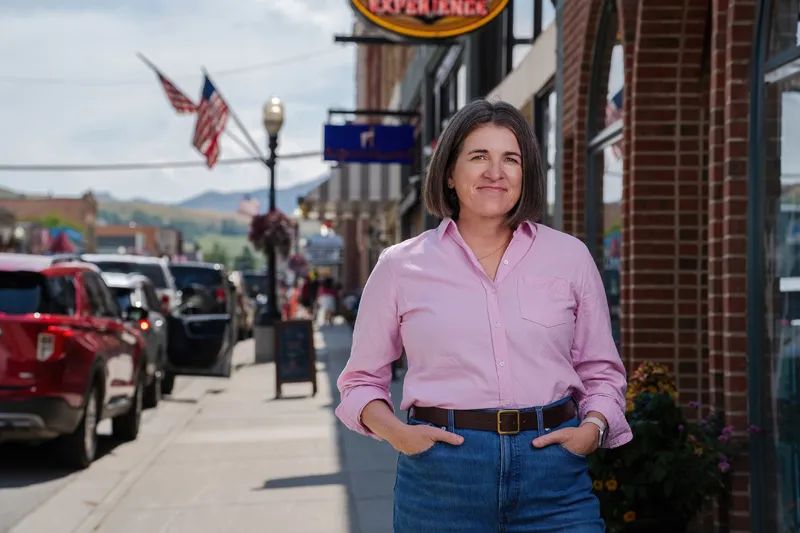dig.jpg?fit=outside&w=1600&h=1066)
Re-Imagining Rural
Program flips the narrative for Montana’s small towns
Before Mikelann Mollman moved to Worden, Montana, with her young family in early 2019, she’d heard all the doomsday predictions for rural Montana: population exodus, closed businesses, nothing to do, isolation, etc. MikelAnn (she prefers Mikey) grew up on a family farm in central Montana. Despite the naysayers, she and her husband (also a small-town kid) knew they wanted to raise their family somewhere out in the country.
One day, seemingly out of the blue, an intriguing post on Worden’s Facebook page caught her eye. Residents could attend a three-part program called “Re-Imagining Rural” sponsored by the Montana State University Extension Community Vitality Program. Anxious to meet like-minded people, Mikey showed up. Since then, she and other Worden residents have energized their small town, population 582, in unexpected ways.
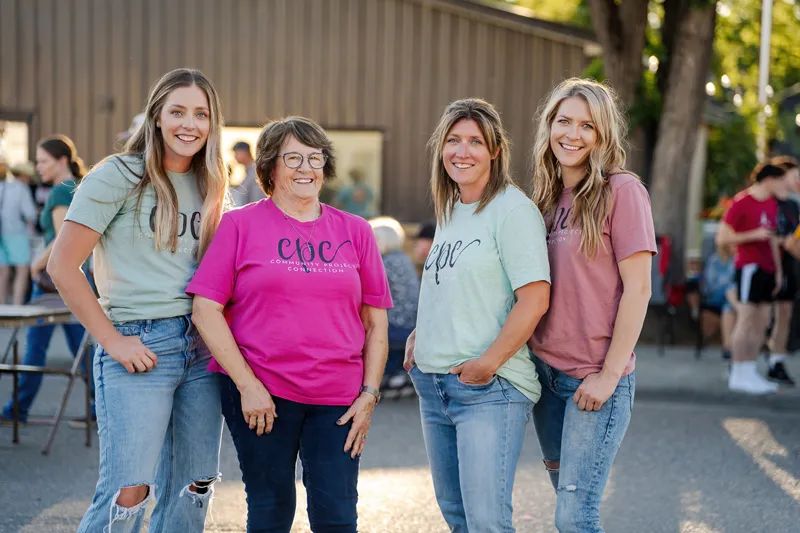
Jessie Novakovich, Marlene Krum, Nikki Zimmer & Mikey Mollman
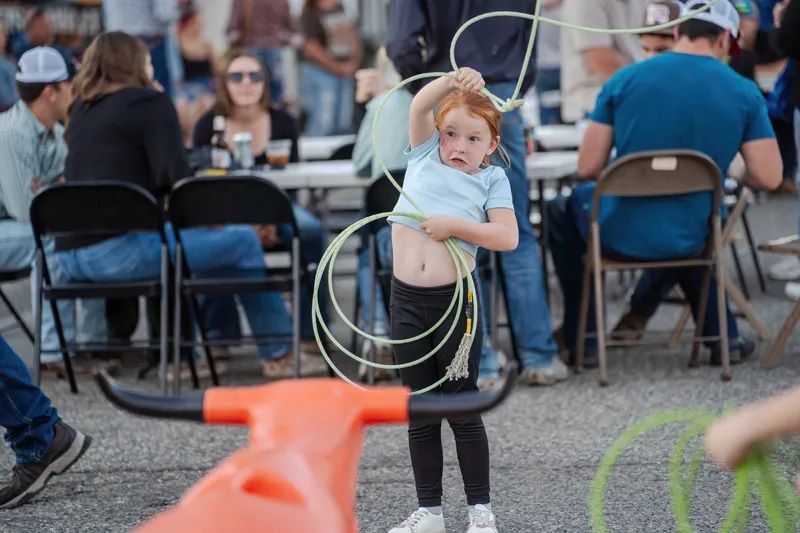
Creating a Buzz
“Re-Imagining Rural” called upon Mikey and others to focus on what they loved about Worden, how it might be improved, and how to implement their vision. After many conversations, strategy sessions and a modest grant from the Montana Community Foundation, their vision has taken shape. Pedestrian benches, flower baskets and holiday lights and decorations now define its Main Street. Billings artist Riley Tane, who calls Worden her “hometown,” created a vibrant mural on the exterior of Project Merc, the local grocery.
The town was abuzz leading up to another hallmark of the group’s efforts — the annual “Beef, Beets and Barley” festival that took over the streets of downtown Worden last September.
Mikey was in the middle of all of it as neighbors, family and friends gathered, surrounded by the town’s nonprofits and community groups. Kids waited in line to get their faces painted, there was a silent auction to benefit the community’s efforts, and who could forget the ever-popular mini cow-pie bingo. Music carried through the night in a street dance that wrapped up the day-long celebration.
“We have our challenges, but they don’t stop us,” Mikey says. She gets excited talking about the local “buzz” she and others have created. “It’s taken on a life of its own,” she says. “You don’t need a big group to get things done. Start with what you have and where you are.”
“Our events and our dreams grow every year,” Mikey says. “When you need a helping hand, it's just a phone call away.” You can hear the delight and enthusiasm in her voice when she talks about Worden’s achievements. “Where do we go next?” is always on her mind.
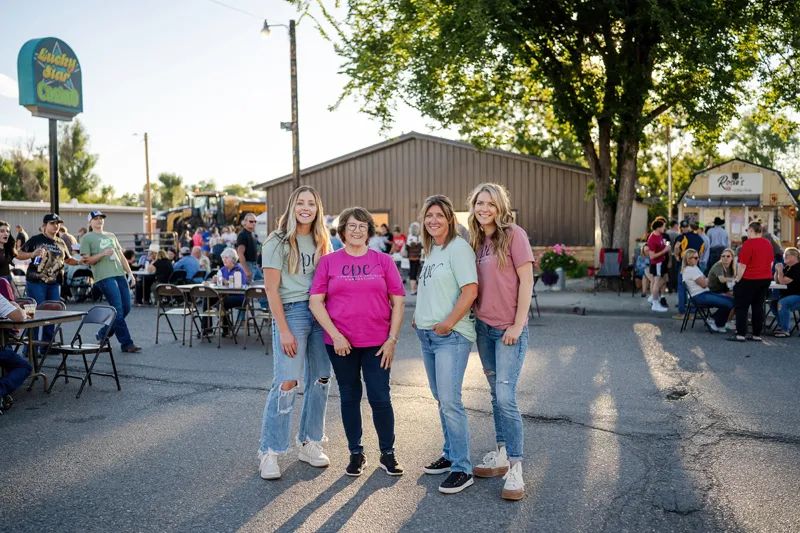
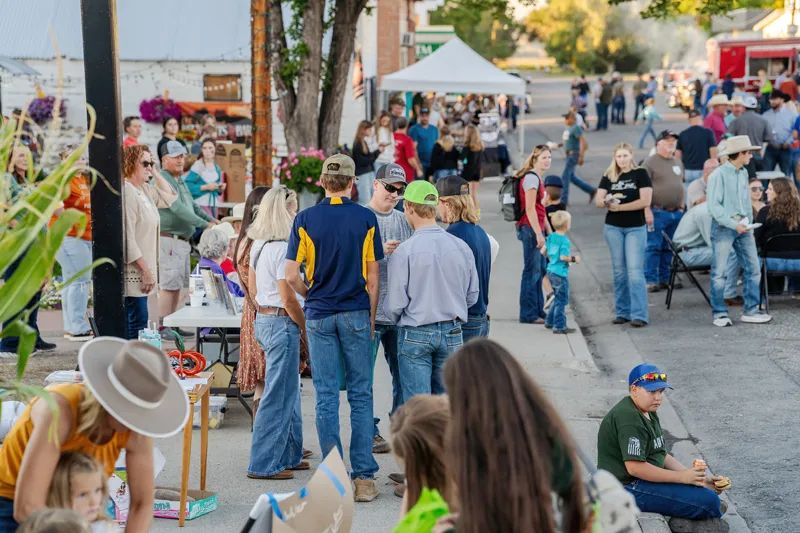
Let’s Flip the Narrative
Tara Mastel is quick to cite Worden as an example of what a small community can do. As an Associate Specialist with MSU Extension’s Community Vitality Program, she engages with Montana rural communities interested in “Re-Imagining Rural.” Under her leadership, over 50 small towns across Montana have challenged the negative stereotypes in a variety of ways. In addition to Worden, she celebrates Roundup, where volunteers recently dedicated a Main Street Plaza that highlights area history and includes a map with directions to local walking trails, a pocket park and a downtown mural.
“We give towns and their volunteers information, an outline and the tools to get started,” Tara says. “Their final destination is up to them.”
“We believe small towns are changing, not dying.” Tara explains. She has national facts and trends showing families are smaller and buying patterns have changed. “Brain drains aren't unique to small towns,” she adds. Census data reveal that adults in their 30s and 40s are choosing to move to small towns. Like Mikey Mollman and her family, they are looking for a less hectic lifestyle and a sense of community.
“We urge Montana’s small towns to focus on the positives of where they live,” Tara says. “We ask them to flip the narrative.”
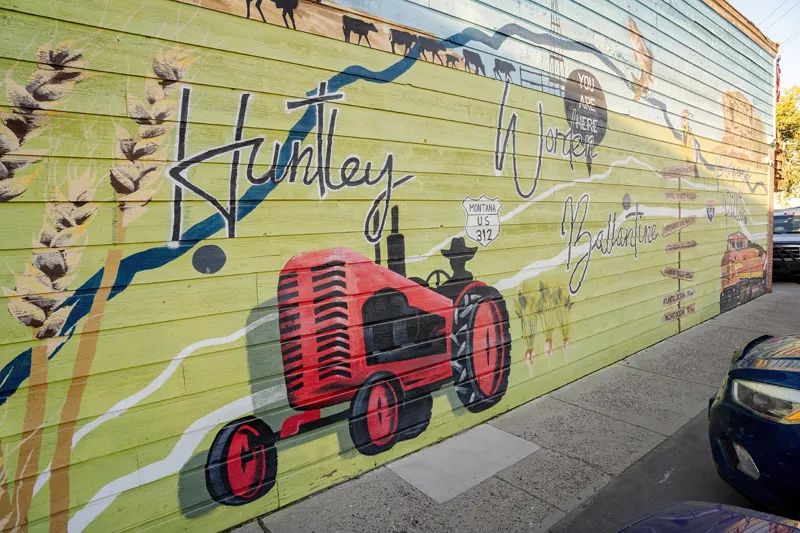
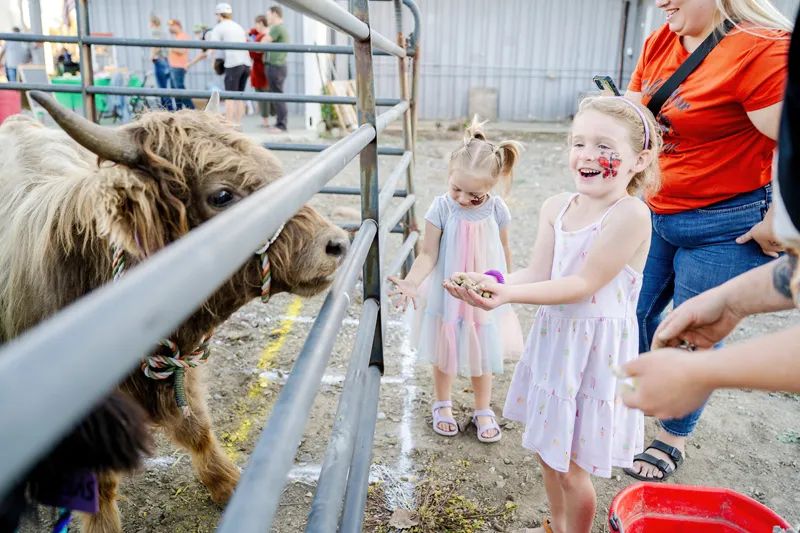
No One is Coming to Do it for You
“Worden is a strong example of small-town revitalization,” Tara says. “I love hearing, ‘If Worden can do it, we can too.’” She firmly believes that small towns are best saved by their own residents using their own resources. She tells her audiences, “No one is coming to save your town for you.”
Across Montana, small towns have held clean-up days, established pocket parks, organized local arts councils, installed playgrounds, benches, picnic tables and visitor kiosks, and supported historic preservation efforts, all of which are noticeable and require substantial effort by many.
“We’re encouraged to look beyond those who say it can’t be done and to find new pathways and opportunities,” says Mikey. The town of Worden, established 1907, named for Caroline M. Worden Dixon, the wife of then U.S. Sen. Joseph P. Dixon (1867-1934), was intentionally developed as part of the Huntley Irrigation Project, an economic development effort that brought irrigation to the eastern reaches of Yellowstone County. These days, Worden is decidedly different. It’s home to Huntley Project K-12 Public Schools, tele-commuters, young professionals, grain farms, ranches and folks who work across Yellowstone County.
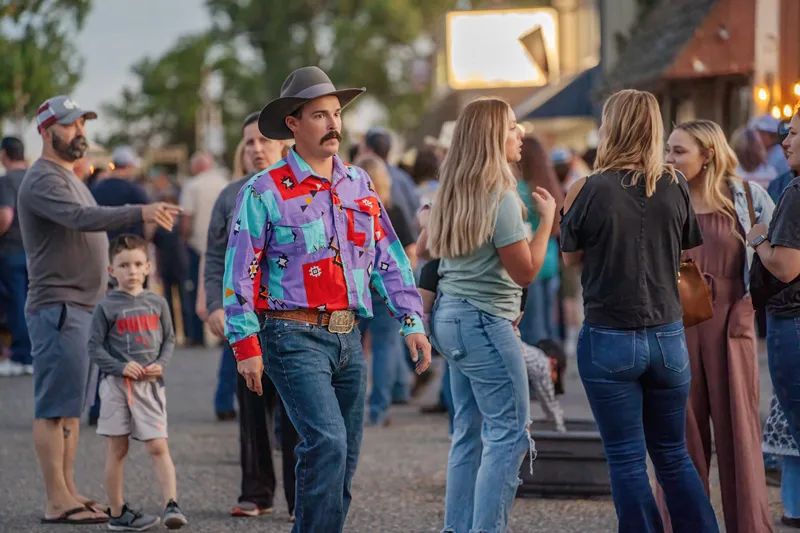
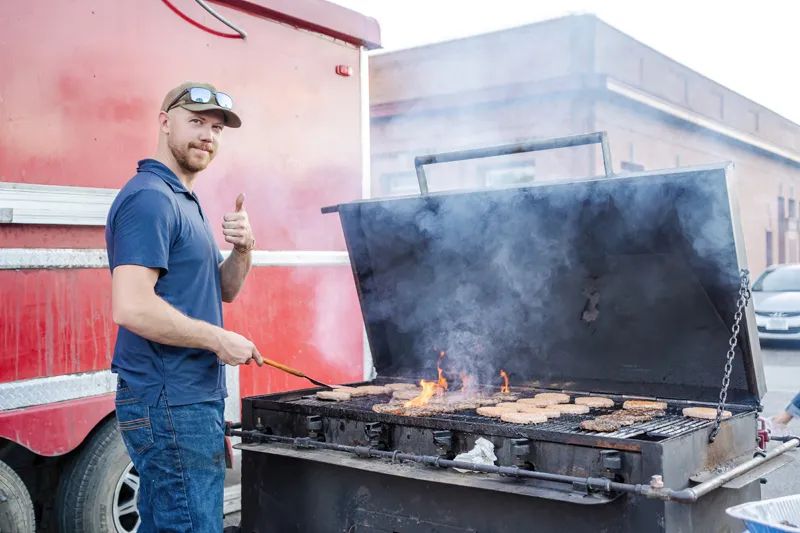
Empowerment and Community
At the core of the “Re-Imagining Rural” program are two intangibles: empowerment and community.
From Mikey’s perspective, Worden residents have been empowered by the concepts and advice offered by the MSU Extension Office. “We decide what we want our town to look like and how we can get there.”
“We are more than a bedroom community,” Mikey says. She's grateful to those families who have lived in Worden for generations. They’ve shared their wealth of knowledge and extended a gracious welcome to newcomers. “Together we’ve created something special. ‘Re-Imagining Rural’ has provided a sense of belonging and re-energized our town.”
“Through these projects, we come together with our neighbors, old and new. We get acquainted, become friends and work side by side. We are there for one another; we lift one another up,” says Mikey. Perhaps that’s the best definition of small-town community that there is.
TO LEARN MORE about Reimagining Rural visit, montana.edu/extension/communitydevelopment/reimagine-rural.html
